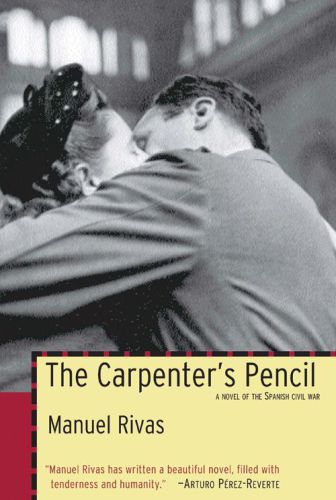
The Carpenter's Pencil
A Novel of the Spanish Civil War
کتاب های مرتبط
- اطلاعات
- نقد و بررسی
- دیدگاه کاربران
نقد و بررسی

May 14, 2001
Dr. Daniel Da Barca is a Republican hero of the Spanish Civil War, an almost folkloric figure at the center of this lyrical though frequently impenetrable import. His story is related, in the spirit of Cervantes's Exemplary Tales, in a bar, by a Galician brothel keeper to a favorite whore. Da Barca's politics and philosophy stem from what his teacher, Dr. Nóvoa Santos, calls "the theory of intelligent reality"—that irony and lyricism are organic parts of the human condition. Even before Franco's uprising, Da Barca's movements were tracked by a soldier named Herbal—a man who conceals his moral susceptibility beneath a shell of brutality. In the first days of the war, Da Barca, along with other Republican notables, is imprisoned in Santiago. One of his fellow prisoners is a painter who is taken out and killed by a group including Herbal. On the way back, Herbal, who has picked up the carpenter's pencil that the painter had been using in prison, hears a voice in his head—it is the voice of the deceased, who makes Herbal into the unwilling vessel of Da Barca's salvation. Twice Da Barca is taken out to be shot, and twice he is saved by Herbal, who later arranges for the doctor's transfer from the harsh prison at Coruña to the less rigorous camp at Porta Coeli, from which he manages to direct a Republican resistance group. Although Rivas's (Butterfly's Tongue) highly charged language is sometimes excessive and the narrative convoluted, his instinctive balancing of Da Barca's heroism against Herbal's brutish plebian consciousness creates a work of endearing nobility that will reward the patience of what is likely to be a very small American audience.

























دیدگاه کاربران